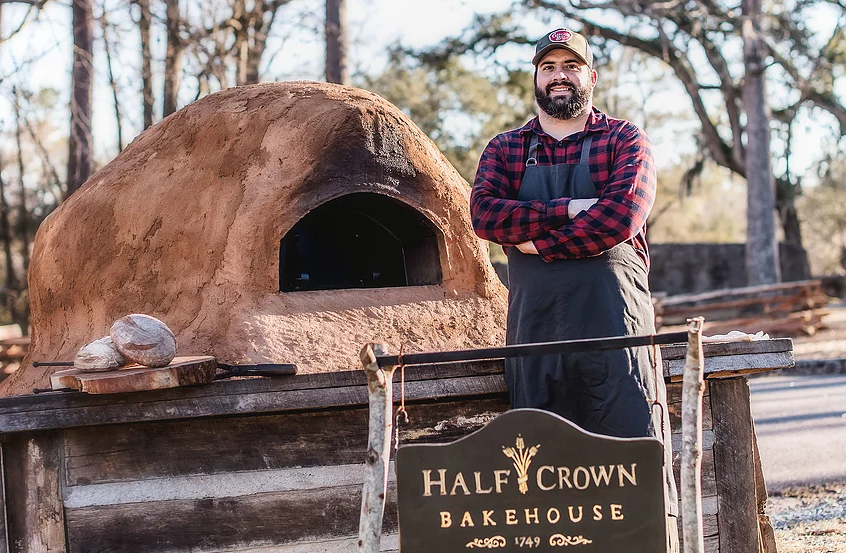No matter how early you arrive at Washington Crossing Historic Park for the First Crossing on December 9, you’ll probably start your day much later than historical baker Justin Cherry.
That’s because Justin, a professional cook who runs Half Crown Bakehouse in Charleston, S.C., will be getting his baking started early in the morning.
Before reenactors and the public arrive at 10 AM, he needs to get a fire going in his mobile clay oven, which was built last year based on descriptions of an oven in Georgia in the 1730s.
Then it’s time to get the bread started.
Colonial-Era Bread
The bread Justin will bake on-site is made with period-accurate wheat and includes peasemeal and the hardest part of the wheat berry. These kernels are typically left out of modern-day breads but were mixed into dough in Washington’s era.
By the time he stops baking bread around noon, he’ll have produced up to 70 loaves!
“I’m doing a mix of things during the First Crossing event,” he says. “I’m hand-mixing and proofing the dough in a replica dough box, baking and selling the bread, and talking about the period-accurate grains and 18th-century baking.”
A Historical Treat
If that doesn’t sound delicious enough, Justin will also serve his warm, fresh-baked bread with a salt pork butter. Though the Continental Army would have eaten much harder bread than he’s producing for the event, they did eat salted pork.
In addition to his fresh-baked bread, he’ll also sell a molded ginger bread biscuit that was traditional treat for civilians in eastern Pennsylvania in the late 18th century.
“My bread would probably be a real treat for soldiers in 1776,” Justin says. “All documentation points to the soldiers struggling at that point in time because rations were scarce. They wouldn’t have had fresh bread, and Washington was actually against fresh bread because it didn’t travel well. The harder the bread, the better.”
A Pennsylvania native and first-timer at the park’s crossing reenactments, Justin has been involved in historical reenacting (particularly the French and Indian War) since he was four years old.
After more than a decade as a professional cook in one of the best restaurants in the country, Husk Restaurant, he wanted to fully combine his love of history with food. “Up until recently this kind of work was part-time, but now I do this full-time,” Justin says.


